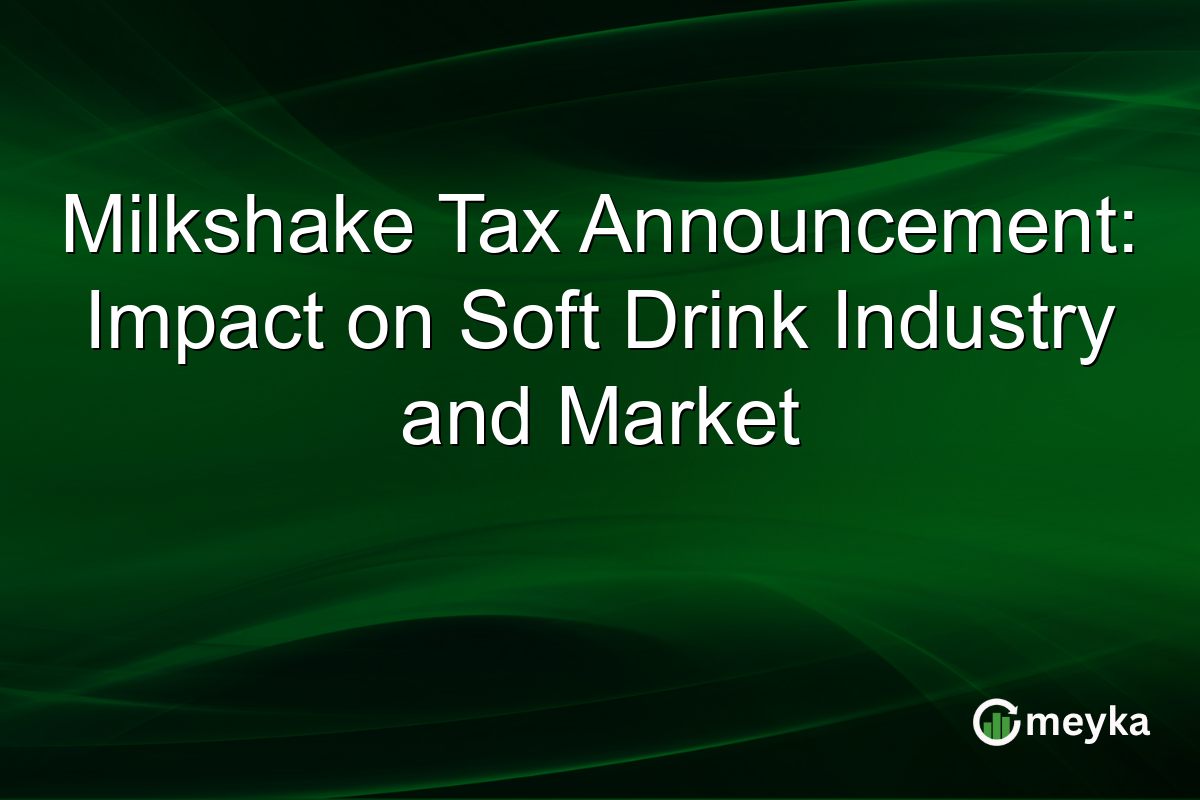Milkshake Tax Announcement: Impact on Soft Drink Industry and Market
Rachel Reeves, the UK Chancellor of the Exchequer, is poised to announce a new ‘milkshake tax’ as part of measures to address the nation’s fiscal deficit. This tax will end the exemption for milk-based sugary drinks, aiming to promote public health. The decision is expected to impact the soft drink industry significantly, potentially leading to higher prices for consumers. This strategic move comes alongside a slew of initiatives aimed at balancing the budget under the Rachel Reeves budget.
Continue Reading on Meyka
This article is available in full on our main platform. Get access to complete analysis, stock insights, and more.
Read Full Article →





